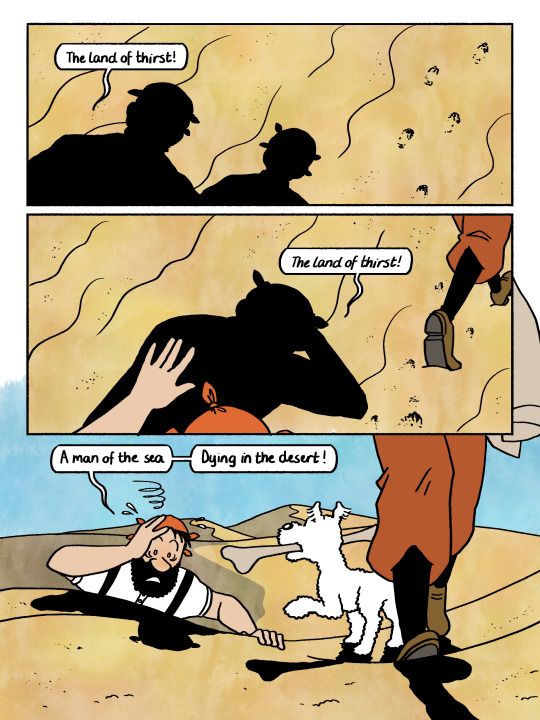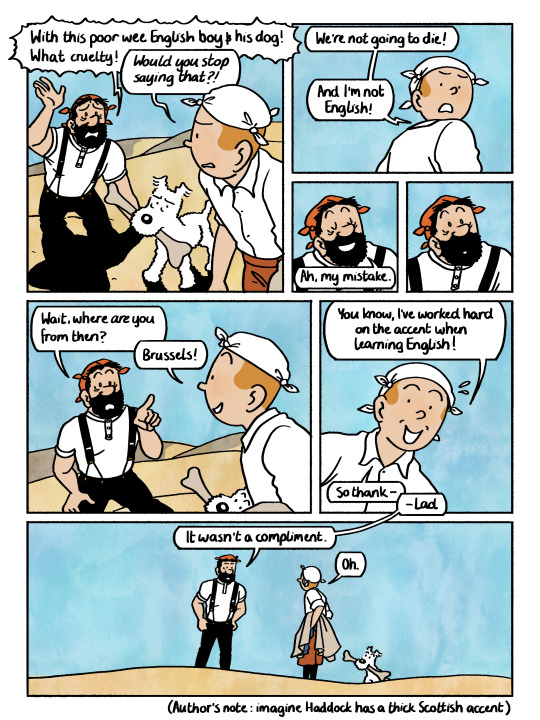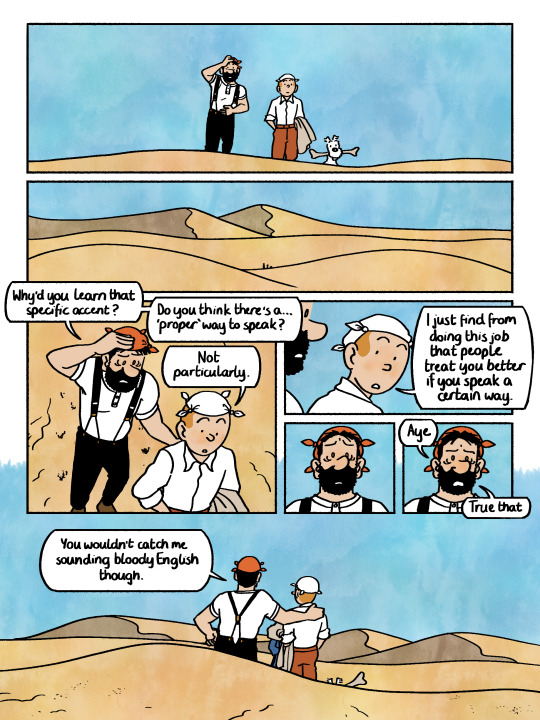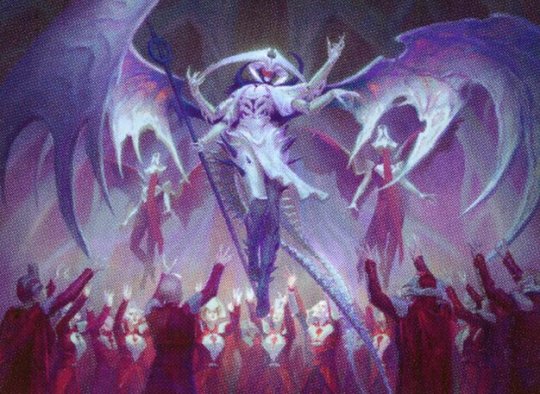#not very smart
Text

yeah I deserved to lose this actually
#im being sarcastic#all three of them literally just get running headfirst into the other team#actually insane#not very smart#also. petition for x rank to stop making teams double backline
2 notes
·
View notes
Text
i used to be so good at writing strong, thoroughly-researched, thoroughly-edited essays.
as a kid in hs, my teacher literally came up to me, holding my 40 page essay on the intersection of the European witch hunts and capitalism/exploitation/gender roles (it was supposed to be 7 pages...whoops) and went like "this is literally a master's-degree level thesis. what are you doing?? you could literally use this as your final dissertation in a master's program, what the fuck."
NOW??? NOW?? you'd think I'd be oh so skilled. but alas. i can barely piece together two ideas. adhd skill-regression is so so real. im SOBBING
#this is just me ranting sorry#im very tired and hungry#and i want to sleep but brain go brrrrr#well i used to be nice and smart and now im neither of those or however the song goes#pretty sure he was exaggerating cause looking back. it was good. but some of the wording was a lil wonky#adhd#actually adhd#executive dysfunction#actually neurodiverse#adhd paralysis#adult adhd#attention deficit hyperactivity disorder#adhd hacks#academia#neurodivergent#adhd skill regression#confessions of a burnt out gifted kid#<< i guess#former gifted kid#burnt out gifted kid#gifted kid burnout#realizing i sound rly pretentious here sorry -- formal speech patterns i picked up as an autistic child and never put down again haha
40K notes
·
View notes
Text
i may have done something very impulsive and reckless
1 note
·
View note
Text



I remember discussing Tintin casting choices with a friend from Germany and remarked how it was odd he often has an English accent in adaptations rather than a Belgian one, and my friend just replied "that's because Tintin gives incredibly strong English boy energy (derogatory)"
Here in the UK there's a lot of weird classism tied into accents. Today accent diversity and representation in broadcasting is actively pursued but in Tintin's time there certainly was a preferred accent to have.
imagine this exchange happens between pages 28-29 in The Crab with the Golden Claws
#tintin#adventures of tintin#comic#captain haddock#archibald haddock#snowy#milou#fanart#the crab with the golden claws#i remember tintin crafting a trumpet to communicate with an elephant#and he remarks he must get the accent correct#very odd scenario but it shows he would be a stickler for that sort of thing#i also have to say accents do not indicate how smart someone is#a lot of pundits use an english accent to sound more credible#but i have to say there are a lot of fucking idiots here#me included#thank you 2011 film for validating my scottish haddock headcanon#any french speakers who have read to this point i wonder what your hcs are for his french speaking accent
7K notes
·
View notes
Text
Today, tumblr taught me the meaning of enby! I'm a pretty slow person, so I'm slowly learning a bunch about different lgbt stuff. Enby was what I learned today! I think ima start updating the new stuff I learn on here.
0 notes
Text
Why do we say backspace as back space and backs pace?
#zel thoughts#Me trying to figure out how the English language works#But also I’m a native English speaker so#not very smart#sometimes#English being a weird language
0 notes
Text
I love that Adaine goes, “Oh, she’s STUPID” whenever an NPC has an off moment when her best friends are:
-a guy who tried to fight hardened pirates with the members of his dad’s pyramid scheme
-a girl who tried to ribbon dance down a tower
-a guy who got tattoos of incomplete anagrams because he thought they were clues
-a guy who thought every stranger was his dad
-Hilda Hilda
#they’re her emotional support idiots and she loves them very much#except riz who just had that one day and is otherwise very smart#also in fairness sometimes its Siobhan talking#dimension 20#d20#fantasy high#fh#fhjy#fantasy high junior year#dimension 20 fantasy high#d20 fh#d20 fhjy#dropout#dropout tv#adaine abernant#riz gukgak#gorgug thistlespring#fig faeth#kristen applebees#fabian seacaster
3K notes
·
View notes
Text
being an international swiftie with tickets to the november shows means i got way too excited about making friendship bracelets and now i’m sick of it and will be waiting until im on the plane to finish them
0 notes
Video
traditional chinese firework 打铁花datiehua in spring festival/chunjie
#china#fun#video#chinese new year#spring festival#chunjie#fireworks#this is very smart#folk's wisdom
25K notes
·
View notes
Text

Just gonna have to wait and see, right? Just wait and see! Just gotta wait and see! Who knows, we'll just have to wait and see! It's anybody's guess, we'll just have to wait and see! The future is exciting, we just gotta wait and see!
#personal#my art#Fuck your fake ass 'i am very smart!' intellectualizing “observations” and open your god damn ears.#do something for fucks sake. it's sickening seeing videos of ai crap and seeing rows and rows of repliers using their one brain synapse#to type “wow! very exciting!” “haha this is kind of scary! but in a really interesting way!”#and then they go about their day without a second thought while creative industries burn around them#i go to one of america's top tech schools too and it's enough to make you wanna tear our your hair#every day it's seminars and talks about “the potential consequences of ai!” when the consequences are happening NOW#NO MORE DISCUSSING NO MORE INTELLECTUALIZING NO MORE SOCRATIC SEMINARS NO MORE DEBATING. ACT YOU COWARDS#people are getting hurt RIGHT NOW. stop pretending to care when you clearly don't! just be honest and say you wanna make money#my time here has really made me hate academic spaces. you people are so god damn useless and cowardly.
3K notes
·
View notes
Text
TUMBLR POST EDITOR WON'T LET ME TITLE THIS POST ANYMORE SO I GUESS THIS IS THE TITLE NOW. WEBBED SITE INNIT
So let's say you grew up in the nineties and that The Lion King was an important movie to you. Let's say that the character of Scar - snarling, ambitious, condescending, effeminate Scar - stirred feelings in you which you had no words for as a child. And then let's say, many years later, you're talking about it with a college friend, and you say something like, "oh man, I think Scar was some sort of gay awakening for me," and she fixes you with this level stare and says, "Scar was a fascist. What's the matter with you?"

The immediate feeling is not unlike missing a step: hang on, what's happening, what did I miss? You knew there were goose-stepping hyenas in "Be Prepared," but you didn't think it mattered that much. He's the bad guy, after all, and the movie's just pointing it out. Your friend says it's more than that: the visuals of the song are directly referencing the Nuremberg rallies. They're practically an homage to Riefenstahl. This was your sexual awakening? Is this why you're so into peaked caps and leather, then? Subliminal nazi kink, perhaps?
And then one of your other friends cuts in. "Hold up," he says, "let's think about what Scar actually did in the movie. He organized a group of racialized outcasts and led them against a predatory monarchy. Why are you so keen to defend their hereditary rule? Scar's the good guy here." The conversation immediately descends into a verbal slap fight about who the real bad guy is, whether Scar's regime was actually responsible for the ecological devastation of the Pride Lands, whether the hyenas actually count as "racialized" because James Earl Jones voiced Mufasa after all. Your Catholic friend starts saying some strange and frankly concerning shit about Natural Law. Someone brings The Lion King 2 into it. You leave the conversation feeling a little bit lost and a little bit anxious. What were we even talking about?
INTRODUCING: THE DITCH
There is a way of reading texts which I'm afraid is pervasive, which has as its most classical expression the smug obsession with trivia and minutiae you find in a certain vein of comic book fan. "Who was the first Green Lantern? What was his weakness? Do you even know the Green Lantern Oath?" It eschews the subjective in favor of definitively knowable fact. You can't argue with this guy that, say, Alan Scott shouldn't really count as the first Green Lantern because his whole deal is so radically different from the Hal Jordan/John Stewart/Guy Gardner Corps-era Lanterns, because this guy will simply say "but he's called Green Lantern. Says so right on the cover. Checkmate." This approach to reading a text is fundamentally 1) emotionally detached (there's a reason the joke goes, oh you like X band? name three of their songs - and not, which of their songs means the most to you? which of them came into your life at exactly the right moment to tell you exactly what you needed to hear just then?) and 2) defensive. It's a stance that is designed not to lose arguments. It says so right on the cover. Checkmate.
And then you get the guys who are like "well obviously Bruce Wayne could do far more as a billionaire to solve societal problems by using his tremendous wealth to address systemic issues instead of dressing up as a bat and punching mental patients in the head," and these guys have half a point but they're basically in the same ditch butting heads with the "well, actually" guys, and can we not simply extricate ourselves from the ditch entirely?
So, okay, let's return to our initial example. Scar is portrayed using Nazi iconography - the goose-stepping, the monumentality, the Nuremberg Lichtdom. He is also flamboyant and effete. He unifies and leads a group of downtrodden exiles to overthrow an absolute monarch. He's also a self-serving despot on whose rule Heaven Itself turns its back. You can't reconcile these things from within the ditch - or if you can, the attempt is likely to be ad-hoc supposition and duct tape.
Instead, let's ask ourselves what perspective The Lion King is coming from. What does it say is true about the world? What are its precepts, its axioms?
There is a natural hierarchical order to the world. This is just and righteous and the way of things, and attempts to overthrow this order will be punished severely by the world itself.
Fascism is what happens when evil men attempt to usurp this natural order with the aid of a group or groups of people who refuse to accept their place in the order.
There exists an alternative to defending and adhering to one's place in the natural order - it consists only of selfish spineless apathy.
Manliness is an essential quality of a just ruler. Unmanliness renders a person unfit for rule, and often resentful and dangerous as well.
And isn't that interesting, laid out like that? It renders the entire argument about the movie irrelevant (except for whatever your Catholic friend was on about, since his understanding of the world seems to line up with the above precepts weirdly well.) It's meaningless to argue about whether Scar was a secret hero or a fascist, when the movie doesn't understand fascism and has a damn-near alien view of what good and evil are.
There's always gonna be someone who, having read this far, wants to reply, "so, what? The Lion King is a bad movie and the people who made it were homophobes and also American monarchists, somehow? And anyone who likes it is also some sort of gay-bashing crypto-authoritarian?" To which I have to reply, man, c'mon, get out of the ditch. You're no good to anyone in there. Take my hand. I'm going to pull on three. One... two...
SO PHYREXIA [PAUSE FOR APPLAUSE, GROANS]
We're talking about everyone's favorite ichor-drooling surgery monsters again because there was a bit in my ~*~seminal~*~ essay Transformation, Horror, Eros, Phyrexia which seemed to give a number of readers quite a bit of trouble: namely, the idea that while Phyrexia is textually fascist, their aesthetic is incompatible with real-world fascism, and further, that this aesthetic incompatibility in some way outweighs the ways in which they act like a fascist nation in terms of how we think of them. I'll take responsibility here: I don't think that point is at all clear or well-argued in that essay. What I was trying to articulate was that the text of Magic: the Gathering very much wants Phyrexia to be supremely evil and dangerous fascists, because that makes for effective antagonists, but in the process of constructing that, it's accidentally encoded a whole bunch of fascinating presuppositions that end up working at cross-purposes with its apparent aim. That's... not that much clearer, is it? Hmm. Why don't I just show you what I mean?

Atraxa, Grand Unifier (art by Marta Nael)
In "Beneath Eyes Unblinking," one of the March of the Machine stories by K. Arsenault Rivera, there's a fascinating and I think revealing passage in which Atraxa (big-deal Phyrexianized angel and Elesh Norn's lieutenant) has a run-in with an art museum in New Capenna. The first thing I want to talk about is that, in this passage, Atraxa has no understanding of the concept of "beauty". A great deal of space in such a rushed storyline is devoted to her trying to puzzle out what beauty means and interrogating the minds of her recently-compleated Capennan aesthetes to try and understand it. In the end, she is unable to conceive of beauty except as "wrongness," as anathema.
So my first question is, why doesn't Atraxa have any idea of beauty? This is nonsense, right? We could point to a previous story, "A Garden of Flesh," by Lora Gray, in which Elesh Norn explicitly thinks in terms of beauty, but that's a little bit ditchbound, isn't it? The better argument is to simply look at Phyrexian bodies, at the Phyrexian landscape, all of which looks the way it does on purpose, all of which has been shaped in accordance with the very real aesthetic preferences of Phyrexians. How you could look at the Fair Basilica and not understand that Phyrexians most definitely have an idea of beauty, even if you personally disagree with it, is baffling. This is a lot like the canonical assertion that Phyrexians lack souls, which is both contradicted elsewhere in canon and essentially meaningless, given Magic's unwillingness or inability to articulate what a soul is in its setting, and as with this, it seems the goal is simply to dehumanize Phyrexians, to render them alien, even at the cost of incoherence or internal contradiction.
Atraxa's progress through the museum is fascinating. It evokes the 1937 Nazi exhibit on "degenerate art" in Munich, but not at all cleanly. The first exhibit, which is of representational art, she angrily destroys for being too individualistic (a point of dissonance with the European fascist movements of the 20th century, which formed in direct antagonism to communism.) The second exhibit, filled with abstract paintings and sculptures, she destroys even more angrily for having no conceivable use (this is much more in line with the Nazi idea of "degenerate art", so well done there.) The third exhibit is filled with war trophies and reconstructions from a failed Phyrexian invasion of Capenna many years prior, which she is angriest of all with (and fair enough, I suppose.) But then, after she's done completely trashing the place, she spots a number of angel statues on the cathedral across the plaza, and she goes apeshit. In a fugue of white-hot rage, she pulverizes the angel heads, and here is where I have to ask my second question:
Why angels? If you are trying to invoke fascist attitudes toward art, big statues of angels are precisely the wrong thing for your fascist analogues to hate. Fascists love monumental, heroic representations of superhuman perfection. It's practically their whole aesthetic deal. I understand that we're foreshadowing the imminent defeat of Phyrexia at the hands of legions of angels and a multiversal proliferation of angel juice, but that just leads to the exact same question: why angels? To the best of my knowledge, the Phyrexian weakness to New Capennan angel juice is something invented for this storyline. They have, after all, been happily compleating angels since 1997. We could talk about the in-universe justification for why Halo specifically is so potent, but I don't remember what that justification is, and also don't care. Let's not jump back in the ditch, please. The point is, someone decided that this time, Phyrexia would be defeated by an angelic host, and what does that mean? What is the text trying to say? What are its precepts and axioms?
Let me ask you a question: how many physically disabled angels are there in Magic: the Gathering? How about transsexual angels? How many angels are there, on all of the cards that have ever been printed for Magic: the Gathering, that are even just a bit ugly? Do you get it yet? Or do you need me to spell it out for you?
SPELLING IT OUT FOR YOU
There is a kind of body which is bad. It is bad because it has been significantly altered from its natural state, and it is bad because it is repellent to our aesthetic sensibilities.
The bad kind of body is contagious. It spreads through contact. Sometimes people we love are infected, and then they become the bad kind of body too.
There is a kind of body which is good. It is good because it is pleasing to our aesthetic sensibilities, and it is good because it is unaltered from its (super)natural state.
A happy ending is when all the good bodies destroy or drive into hiding all of the bad bodies. A happy ending is when the bad bodies of the people we love are forcibly returned to being the good kind of body.
Do you get it now?
ENDNOTES
It's worth noting that the ditch is very similar to the white American Evangelical hermeneutics of "the Bible says it. I believe it. That settles it," the defensive chapter-and-verse-or-it-didn't-happen approach to reading a text, what Fred Clark of slacktivist calls "concordance-ism". I don't think that's accidental. We stand underneath centuries of people reading the Bible very poorly - how could that not affect how we read things today? We are participants in history whether we like it or not.
I sincerely hope I haven't come across as condescending in this essay. Close reading is legitimately difficult! They teach college courses on this stuff! And while it is frustrating to have my close readings interrogated by people who... aren't doing that, like. I do get it. I find myself back in the ditch all the time. This stuff is hard. It is also, sorry, crucial if you intend to say something about a text that's worth saying.
I also hope I've communicated clearly here. Magic story is sufficiently incoherent that trying to develop a thesis about it often feels like trying to nail jello to the wall. If anyone has questions, please ask them! And thank you for reading. Next time, we'll probably do the new Eldraine set.
#phyrexia#not defining the ditch except by implication#thanks to all the very smart vorthoi on the flavor text discord server for helping me work through my thoughts on fascism and phyrexia#this is technically the march of the machine review also#or as much of one as i care to do
5K notes
·
View notes
Text
off of my last post: i feel like corporate horror has such a rich seam of possibilities that are just begging to be mined. the helpless, nightmarish feeling of watching your life get chewed up by the implacable machinery of faceless corporations in which you are nothing but an easily-replaceable cog and knowing the whole time that you chose to be here. that you can, theoretically, leave any time you want. mindless, pointless busywork that you're expected to take pride in even when it has no measurable impact. feeling like you're running on a treadmill - always busy, never achieving anything. upper managers who only communicate with you by email. CEOs who never communicate with you at all, and may not actually exist for all you know. you can leave any time you want. but you can't, can you? not really. you still have to pay the bills.
#maybe i need a new job#i am only 2 episodes into severance but i loveee the concept of 'even if you walk out you'll just come back again'#like the reason you can't leave is not just because there's a locked door in the way. you can't leave because you trapped yourself here#it's very smart! i like it
7K notes
·
View notes
Text
"he asked me to prom, did you know that?" "CAN WE GO TO THE FARM MOM?!" riz gukgak absolute dorkass loser you are so special to me. same exact energy as the bad kids going over to gorgug's for the first time and digby and wilma's "we have pictures!"
#riz being fundamentally a dorky teenager boy is so important#like. yes he's a secret agent yes he's a dope ass rogue yes yes yes#he's very talented and incredibly smart and important#but ALSO. briefcase kid.#fantasy high#d20#dimension 20#fhjy
2K notes
·
View notes
Text
Immortal Nanny
Bruce Wayne had never been a father. He knew what it was like to be a good father, and he knew what good fathers should be like, but adopting Richard was an impulse, a moment when he decided to give a child the comfort he needed, as he himself had needed in the past.
But just because he knew and understood didn't mean he could do it, or that he could become a good father instantly. Alfred would be a great help, of course, but it was he who had to raise the boy, Alfie was too old to start raising another child.
So, it was only natural that he forgot all about his busy life as "Brucie Wayne", adopting Dick hadn't stopped the million interviews or meetings, and while Alfred was extremely capable, Bruce still decided to hire a nanny.
Daniel Nightingale was a bit of an outsider (in a good way), he was studying at Gotham U, and was doing very well in his chosen career; though his records were strangely empty, Bruce knew he could trust him. His tired look and the shy smile he gave him upon arriving at the mansion was enough to calm his concerns.
Perhaps it was because he was just starting out as Batman at the time that he didn't investigate further.
Anyway, Dick loved Danny, from that first day, he used to tell Bruce about his "adventures" and how much fun he had. On one occasion he even told him they had a snowball fight (which confused him, because it was July but he was too tired to question the excited kid).
So, Danny became Dick's, and later Jason's, official nanny. He never complained and always smiled. The boy got along quite well with Alfred and would attend to any emergency, although he was never involved in the vigilante business.
It was only after Jason's death, when Tim arrived, that someone began to question Danny. Tim wasn't sure about Danny, there were a lot of things...that just didn't fit, and if the old photos of the mansion were any indication, the nanny wasn't getting any older.
Dick wasn't ten anymore and that was pretty obvious, but Danny looked exactly the same. Tim frowned, puzzled as to how no one had investigated such an oddity before. Alfred simply looked at him with an amused smile. He wondered how long it would take for the family to notice the (rather obvious) secrets of the elusive nanny.
Alfred couldn't blame the boy, the easiest way to hide something was in plain sight. And he knew the halfa would never hurt his family.
#dpxdc#Babysitter Danny#He took care of the Robins when Bruce was busy#Bruce trust in Alfred of course#but he also wanted to give the butler a break#immortal danny#Danny never hid his powers he just didn't use them very often#Of course Alfred knows#he dealt with it from day one#Danny just wanted a job and he took a liking to the Robins at the end#dp x dc#dc x dp#Dick knows Danny isn't normal from his childhood memories#but he's not a snitch#Jason knows it too and is excited to have a secret with Danny#Tim is simply too smart to leave a loose end#Bruce trusts Danny but he hasn't questioned him in years#Maybe is because the one who knows Danny is Bruce Wayne and not Batman#Danny is taking care of Jason's soul in the Realms#at the end of the day he is still his nanny#he will find out when he revives
3K notes
·
View notes
Text
for a while i was very focused on buying clothes very often and i thought i should feel bad because "i don't need them" or "i'm spending too much" etc. but actually i did need them because now im done, i never buy any clothes anymore unless they stop fitting me or im unable to use them for rags or something. i shamed myself thinking i was being greedy when actually i was just being plus sized and poor
#mine#nothing stresses me like money stresses me#growing up poor sucks ass#and i really sat here and thought it didnt affect me#not very smart#not very big brain of me
0 notes
Text
Something I miss from earlier eras of the creative side of the internet was things just being unabashedly low-budget. Just all unashamedly amateur, unprofessional, ‘I don’t own a good camera but I have a story to tell you’, ‘I can’t afford a good mic but I have a song to sing for you,’ ‘I don’t have any kind of background in editing or lighting and I only just picked up this guitar last Tuesday but here’s an entire musical me and my friends wrote about our favourite book, we filmed it on a potato and put it up on YouTube in ten minute segments because we thought it was pretty funny.’
#everything felt so much less like Content then#and as someone who wants to share creative stuff online#it’s now incredibly daunting thinking about doing that bc#especially as a disabled person who can’t work full time#it feels almost impossible to extricate art from being Content#like there’s this immense pressure to produce things that could pass as professionally produced by a team of educated people#and to make smart decisions so that somehow eventually you can profit off your art#and instead of it being a ‘hey look at my silly little song’ it becomes#competing in an over saturated market already dominated by the nepotism afforded by wealth and connections#and it feels like it would very difficult not to measure my personal satisfaction with how a certain piece of art turned out#by how much attention it got online#even though I genuinely have zero desire to be famous and it sounds like a complete nightmare#anyway I’m gonna have ice cream for dinner how about you guys#hmp42
5K notes
·
View notes